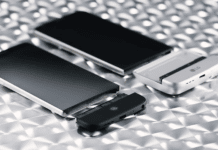Listen to this article:
I’ve personally dabbled with online poker on and off for the last 15 years. In my twenties, time-rich and money-poor, I was constantly experimenting with ways to make money online.

After researching advanced poker tactics such as multi-table playing I soon came across Poker Tracker. It’s an interesting idea – this third-party piece of software tracks all the players in all the games you play and shows what it knows about each player in real-time.
It integrates neatly with the main poker apps (in my case Poker Stars) and using simple meters displays how aggressive, cautious and successful that player is. With no affiliation with the poker sites, all the data is collected by you, meaning you start on day one with no information about anyone. But surprisingly quickly you build up highly useful stats on the players at your table and can start to make better guesses about their likely position. Do they genuinely have the strong hand their play suggests or are they just bluffing? Anything that can help you judge a player’s character is invaluable.
So what does this have to do with self-driving cars?
One big surprise with Poker Tracker was how often I would enter new tables, and see players who I already had data on. You imagine in the vast, global sea of poker players that repeat encounters would be rare, but not so it seems.
Autonomous vehicles boast a wide array of sensors – LIDAR, image and radar. Combined with powerful software to crunch all the incoming data efficiently, it seems likely that number plate recognition would be in there somewhere. And just like my experience roaming the online poker circuit, we’ll (hopefully not literally) bump into the same cars again and again.
Think about your school run or work commute. Your supermarket trips and family visits. You drive past the same people all the time without realising it. But the algorithms on board your self-driving car will know it, and judge those drivers accordingly. In fact, autonomous vehicles will have to do this in a world where there are both human and software-driven cars on the road. Until 100% of cars out there are autonomous, tracking other drivers is an invaluable survival mechanism for the technology.
The key debate at the heart of automated vehicles is always around the ethics of driving itself, and specifically collisions. Whether the car should swerve to hit an elderly fat woman or a healthy, young dog is important, but there seems to be little discussion around the data these vehicles will collect and how they use that.
“A world where my cautiousness at roundabouts leads to marketing that plays on specific fears showing up on my screens is not unimaginable.”
Aside from conspiracy theorists who believe that autonomous cars will serve as a network of surveillance drones, there is a huge privacy question. Will human drivers be tracked and judged by number-plate recognising autonomous vehicles, and will that data be owned by Google et al?
Will my driving style become yet another input into the psychographic map of me held by the big tech companies, which allows them to show me ‘better’ ads? A world where my cautiousness at roundabouts leads to marketing that plays on specific fears showing up on my screens is not unimaginable.
As the 2030s – the decade many predict that automated tech becomes normalised – grow nearer, we have to ask these questions. But as we’ve seen with today’s mobile and social technology, we’re only capable of really caring about privacy when it’s far too late.
Want to learn new creative and marketing skills with me? Check out upcoming courses on topics like SEO, content marketing, copywriting and podcasting.
What's trending in digital marketing?
Stay on top of the latest news, tips, tools and updates in digital. Just for people in marketing and business. No fluff, no ads, no spam.
Join thousands of readers keeping abreast with it all, every Thursday.

















